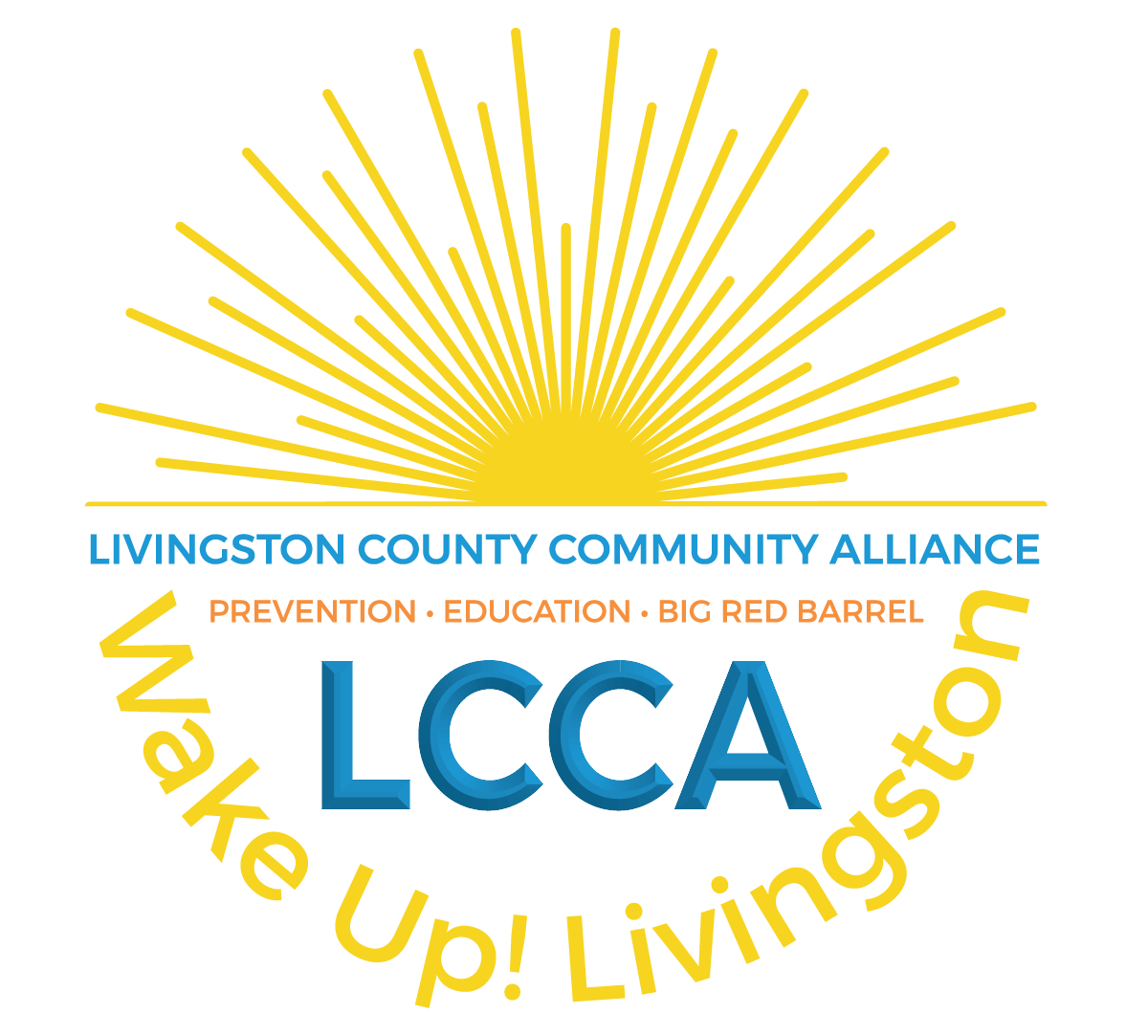Years Past - Our Years in Review:
In Loving Memory
It is with great sadness to share that Megan Palmer passed away on January 8, 2022 in Midland at her parents after a short battle with cancer. She was surrounded by the love of the family and friends. It is truly a devastating loss not only to our coalition but to our community as well. She was a great advocate for youth and preventing youth substance use. She has helped create so much change in our community and we cannot thank her enough.
Megan went to great lengths with her team on the LCCA/LCCP and Big Red Barrel to bring free training and valuable educational programs for parents and teens to help foster the discussion around substance use/abuse. Many of you may have seen her in the community at the numerous events, talking with teens and parents, and just volunteering in general because that is who she was.
We will never forget the work that she did and will continue to work to prevent youth substance use in her memory. She will truly be missed.

Project Sticker Shock:
Project Sticker Shock is a youth-based activity in which area youth place stickers on multi-packs of beer and wine coolers reminding buyers that it’s illegal to purchase alcohol for minors. Project Sticker Shock is implemented in each Livingston County community throughout the year.
Each year, 50 Livingston County alcohol retailers participate in Project Sticker Shock. Area teens and local law enforcement team up to “Shock” the county during Homecoming and Prom season when teenage alcohol use is the most prevalent. If you are interested in “Shocking” the county or are a store who would like to participate, please contact us!
Project Sticker was a program that ran for many years under the LCCA but is no longer active.

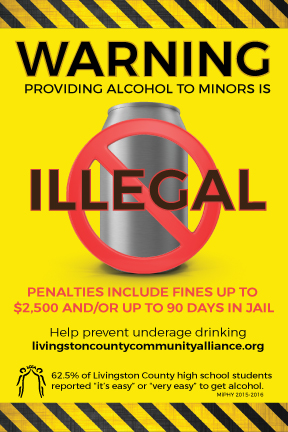
Safe Boating:
Summer is the time of year when you can get on the water and enjoy boating, water activities, and spending additional time with family and friends. For some people, these activities include drinking alcoholic beverages. For many boat operators, they don’t know that they can become impaired more quickly than a driver, drink for drink, Boating Under the Influence (BUI) is a crime and can include large fines, losing your operating license, and even potentially jail time. In addition, alcohol on boats by both the operator and/or their family and friends is involved in about a third of all recreational boating fatalities.
You Wouldn't DUI, So Why BUI?
Every boater needs to understand the risks of Boating Under the Influence (BUI). In Michigan, it is illegal to operate a boat while under the influence of alcohol or drugs. The Michigan Coast Guard also enforces a federal law that prohibits BUI. This law pertains to ALL boats from canoes and rowboats to the largest ships on the Great Lakes.
![LivingstonBUIFlyer[Final] Safe Boating Livingston](https://drugfreelivingston.com/wp-content/uploads/2020/10/LivingstonBUIFlyerFinal.jpg)
Alcohol affects judgment, vision, balance and coordination. These impairments increase the likelihood of boating accidents for both passengers and boat operators. In addition, by not responsibly locking up your alcoholic beverages on board, you could be promoting underage drinking- do you notice if your youth or their friend is sneaking any alcohol?
Alcohol use by the boat operator or riders is even more hazardous on the water than on land. Being on the lake with the boat’s engine noise, sun, wind and spray accelerates a drinker’s impairment. These stressors cause fatigue that makes a boat operator’s coordination, judgment and reaction time decline even faster when using alcohol.
Alcohol can also be more dangerous to boaters because boat operators are often less experienced and less confident on the water than on a highway. Recreational boaters don’t have the benefit of experiencing daily boat operation. In fact, Michigan boaters average only 75 hours on the water per year.
Safe Boating is no longer done by the LCCA.
Safe Homes:
A “Safe Home” is a home in which the family or an adult has committed to providing a safe and substance-free environment for their children, and any other youth who spend time there. Kids and adults can be confident that minors under the age of 21 will not be offered or allowed to use drugs or alcohol while they are in these families’ homes. Livingston County Safe Homes was inspired by SRSLY Safe Homes in Washtenaw County. It was created in response to a growing concern among residents about the prevalence and perceived acceptance of teen drinking parties hosted by parents.
By pledging to be a Safe Home, adults agree to:
- Actively supervise all gatherings or parties of youth in my/our home or on my/our property, or ask another responsible adult for help to do so.
- Not allow the possession or use of alcohol, tobacco, or other drugs, including recreational prescription drug use, by youth in my/our home or on my/our property.
- Set expectations for my/our children by knowing where they are going, who they are with, what their plans are, and when they are to return home.
- Provide a secure storage place for all forms of alcohol and prescription drugs in my/our home.
- Talk with any parent of a child they personally observe using alcohol, tobacco, or other drugs.
- Have their name published on the Safe Homes website
Safe Homes was done from 2019 to early 2024.
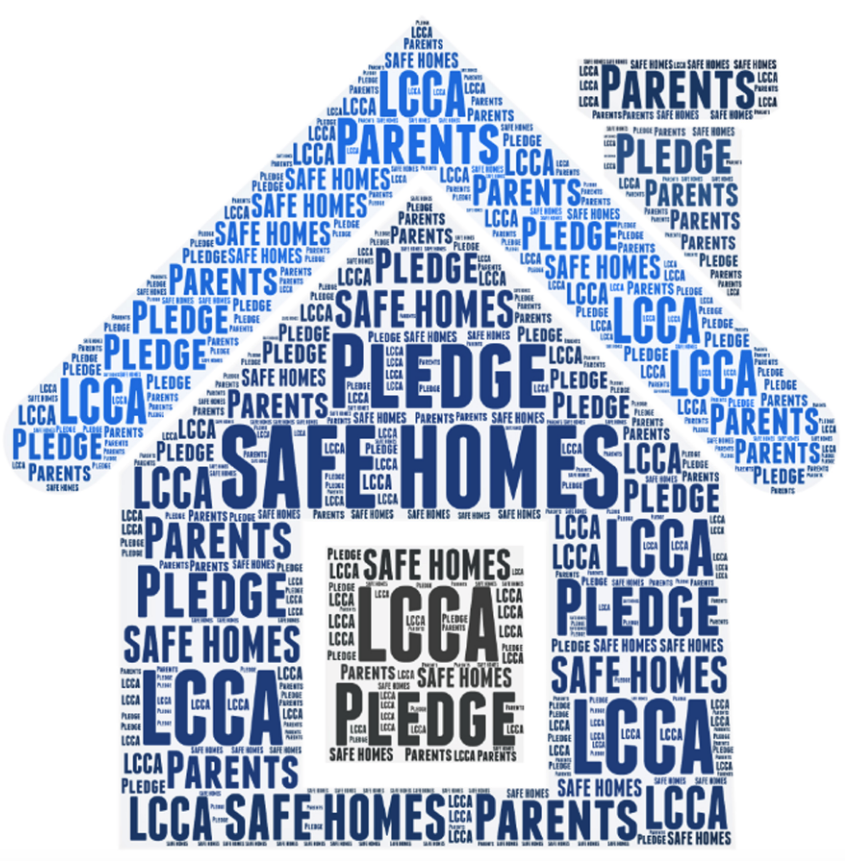
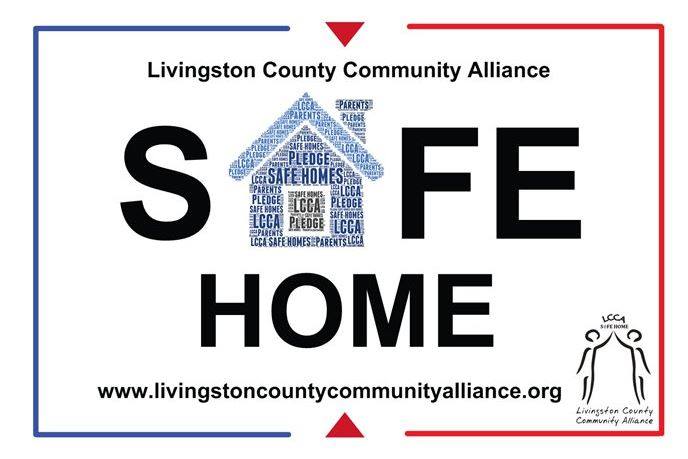
Be the Most:
The Most Campaign is a social norming campaign for Livingston County. The concept of the campaign is to let students and their parents know that MOST Teens Don’t Use alcohol, tobacco, marijuana, and prescription drugs. Thus, in order to “fit in” or “be part of the crowd”, teenagers do not need to use.
Studies show that peer and parent perceptions about the percentage of teenagers who use substances are much higher than actual numbers of teenagers who are using. Since changing perceptions is the first step in changing behaviors, the campaign focuses on the positive – that MOST teens are not using. By correcting the misconceptions, teens won’t feel pressured to use because they believe that “everyone else is doing it”.
The campaign consists of school based activities that coincide with drawing attention to different substances each month throughout the school year. Past activities have included widespread poster distribution, social media postings, and promotional giveaways.
Our Be the Most campaign was done for several years in Livingston County by the LCCA but is no longer active.
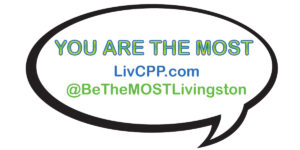
Join Us For Our Monthly Meetings
Everyone is welcome to join! Our meetings take place the 2nd Tuesday of each month from 6:00-7:30 pm via In-Person at LESA in Howell (1425 W. Grand River Ave) and Zoom. To learn more contact us via email at livingston.community.alliance@gmail.com.
